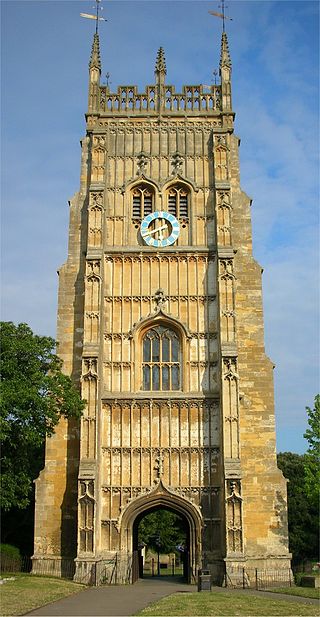Ælfweard is the name of:
- Ælfweard of Wessex (902–924), second son of Edward the Elder, according to some sources briefly king of Wessex
- Ælfweard of London (died 1044), Bishop of London
Ælfweard is the name of:

The Kingdom of Wessex was an Anglo-Saxon kingdom in the south of Great Britain, from 519 until England was unified by Æthelstan in 927.

Year 902 (CMII) was a common year starting on Friday of the Julian calendar.

Æthelstan or Athelstan was King of the Anglo-Saxons from 924 to 927 and King of the English from 927 to his death in 939. He was the son of King Edward the Elder and his first wife, Ecgwynn. Modern historians regard him as the first King of England and one of the "greatest Anglo-Saxon kings". He never married and had no children; he was succeeded by his half-brother, Edmund I.

Sophie, Duchess of Edinburgh, is a member of the British royal family. She is married to Prince Edward, Duke of Edinburgh, the youngest sibling of King Charles III.

Prince Edward, Duke of Edinburgh, is a member of the British royal family. He is the youngest child of Queen Elizabeth II and Prince Philip, Duke of Edinburgh, and the youngest sibling of King Charles III. He was born 3rd in the line of succession to the British throne and is now 14th.
Ælfweard was the second son of Edward the Elder, the eldest born to his second wife Ælfflæd.

Evesham Abbey was founded by Saint Egwin at Evesham in Worcestershire, England between 700 and 710 following an alleged vision of the Virgin Mary by a swineherd by the name of Eof.

Thomas Hardy's Wessex is the fictional literary landscape created by the English author Thomas Hardy as the setting for his major novels, located in the south and southwest of England. Hardy named the area "Wessex" after the medieval Anglo-Saxon kingdom that existed in this part of that country prior to the unification of England by Æthelstan. Although the places that appear in his novels actually exist, in many cases he gave the place a fictional name. For example, Hardy's home town of Dorchester is called Casterbridge in his books, notably in The Mayor of Casterbridge. In an 1895 preface to the 1874 novel Far from the Madding Crowd he described Wessex as "a merely realistic dream country".

The New Minster in Winchester was a royal Benedictine abbey founded in 901 in Winchester in the English county of Hampshire.
Ælfweard was a medieval Bishop of London.
Frithestan was the Anglo-Saxon Bishop of Winchester from 909 until his resignation in 931.
Ælfflæd is a name of Anglo-Saxon England meaning Ælf (Elf) and flæd (beauty). It may refer to:
Events from the 10th century in the Kingdom of England.
Ecgwynn or Ecgwynna, was the first consort of Edward the Elder, later King of the English, by whom she bore the future King Æthelstan, and a daughter who married Sihtric Cáech, Norse king of Dublin, Ireland, and Northumbria. Almost nothing is known about her background and life. Not even her name is given in any sources until after the Norman Conquest. The first to record it is William of Malmesbury, who presents it in Latinised guise as Egwinna and who is in fact the principal source for her existence.
Ælfflæd was the second wife of the English king Edward the Elder.

The Last Kingdom is a British historical fiction television series based on Bernard Cornwell's The Saxon Stories series of novels. The series was developed for television by Stephen Butchard and premiered on 10 October 2015 on BBC Two. For the second season, Netflix co-produced the series. In 2018, the series was acquired by Netflix who continued to solely produce the series for three more seasons. The series concluded on 9 March 2022 after five seasons for a total of 46 episodes. A feature-length sequel that concluded the series story, titled Seven Kings Must Die, premiered on 14 April 2023 on Netflix.

The Flame Bearer is the tenth historical novel in The Saxon Stories series aka The Last Kingdom series by Bernard Cornwell, first published in October 2016. It is set in 10th-century England and continues to follow the fortunes of the fictional Uhtred of Bebbanburg. In this novel Uhtred sets out to finally regain his childhood home, Bebbanburg, which is now held by his cousin.

War of the Wolf is the eleventh historical novel in The Saxon Stories series by Bernard Cornwell. It was first published in October 2018.

Sword of Kings is the twelfth historical novel in The Saxon Stories series by Bernard Cornwell. It was first published in October 2019.

The Last Kingdom: Seven Kings Must Die is a British historical drama film directed by Edward Bazalgette, written by Martha Hillier, and based on the The Saxon Stories by Bernard Cornwell. It acts as a sequel and conclusion to The Last Kingdom television series. Series regulars Alexander Dreymon, Harry Gilby, Mark Rowley, Arnas Fedaravicius, Cavan Clerkin, James Northcote, Ross Anderson, Ilona Chevakova, Rod Hallett, Ewan Horrocks and Steffan Rhodri reprise their respective roles. The film was released on 14 April 2023 on Netflix.